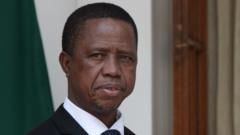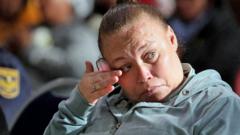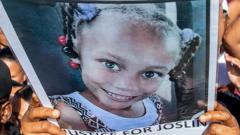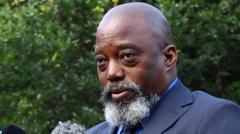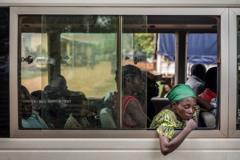The reopening of the inquest into Chief Albert Luthuli's death brings renewed scrutiny to official narratives and reflects ongoing struggles for truth and accountability in South Africa.
South Africa to Revisit Controversial Death of Nobel Laureate Chief Luthuli
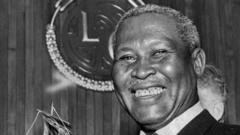
South Africa to Revisit Controversial Death of Nobel Laureate Chief Luthuli
An important inquest re-examination sparks hope for justice in apartheid's shadow.
A South African court is set to revisit the mysterious death of Chief Albert Luthuli, a notable figure in the fight against apartheid and Nobel Peace Prize winner. The initial inquest from 1967 concluded that Luthuli was accidentally struck by a train while on a railway line; however, numerous family members and activists have long disputed this explanation. The family expressed their support for the renewed investigation, despite the prolonged duration since the tragic event.
Luthuli, leader of the banned African National Congress (ANC) at the time of his death, was celebrated internationally for his courageous stand against racial injustice. The ANC ultimately rose to power in 1994 with the establishment of a democratic South Africa. The National Prosecuting Authority (NPA) has committed to presenting new evidence in court that could disrupt the original findings about Luthuli’s death, the substance of which remains undisclosed.
The 1967 inquest’s conclusion indicated that no criminal actions were identified involving South African Railways workers regarding Luthuli’s death. Nonetheless, doubts persist about the integrity of this investigation, with suspicions that he may have been murdered by state authorities. Albert Mthunzi Luthuli, the late chief’s grandson, expressed hope for truth and justice for victims of apartheid, criticizing the Truth and Reconciliation Commission for its amnesty provisions that left many questions unanswered.
Alongside Luthuli's case, another inquest into the assassination of anti-apartheid lawyer Mlungisi Griffiths Mxenge is also reopening. Mxenge was brutally murdered in 1981, and although there were initial inquiries into his death, it wasn't until 1997 that substantial culpability was acknowledged against certain individuals. New evidence led to the justice ministry's decision to reassess this high-profile case.
As South Africa grapples with its apartheid past, the reopening of these inquests is not just a legal matter but a societal demand for accountability and remembrance, addressing the haunting legacy of a painful history.


